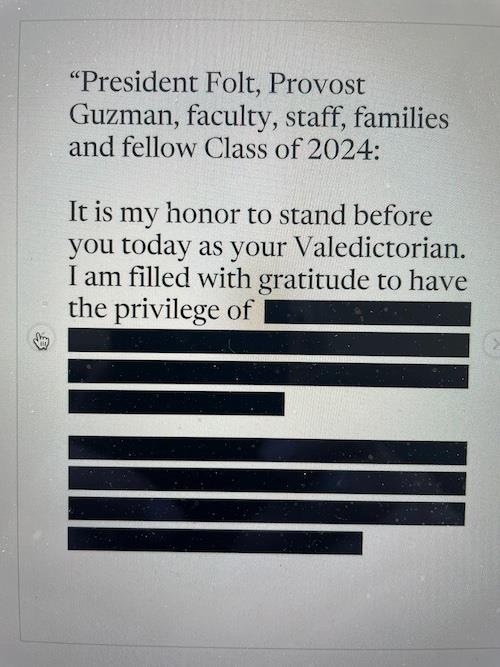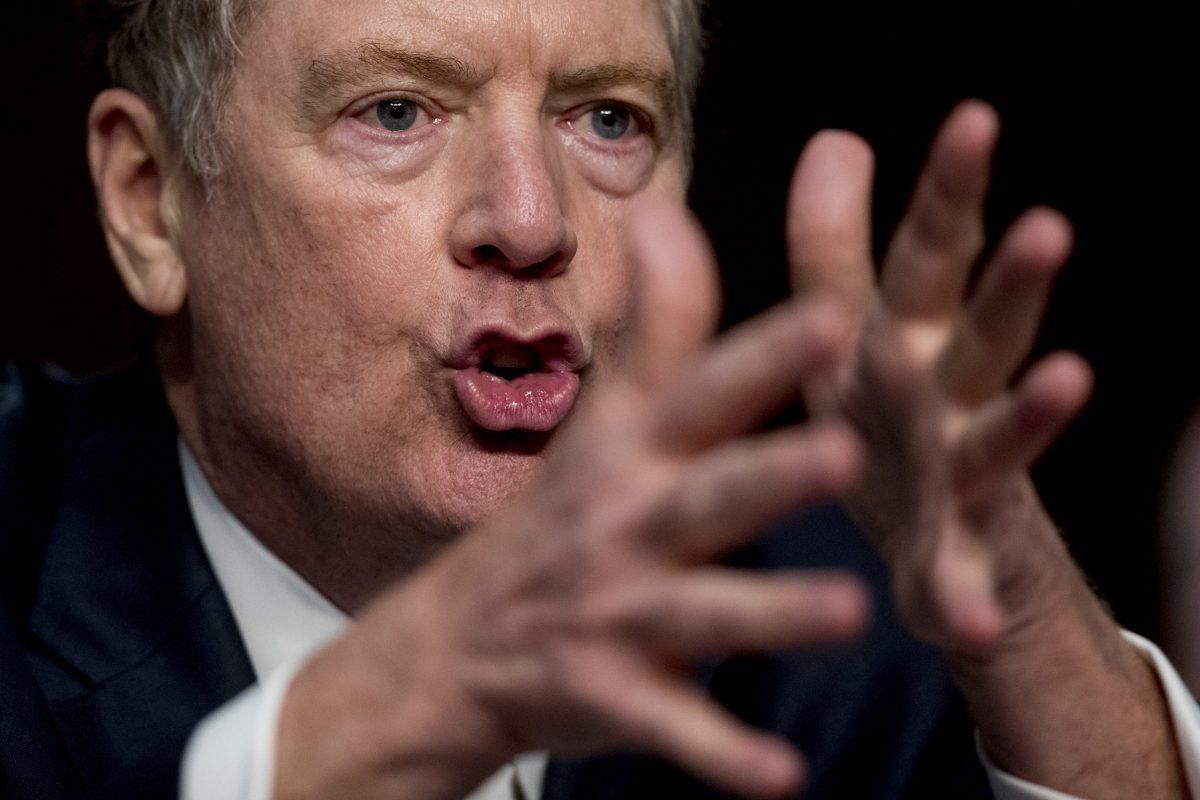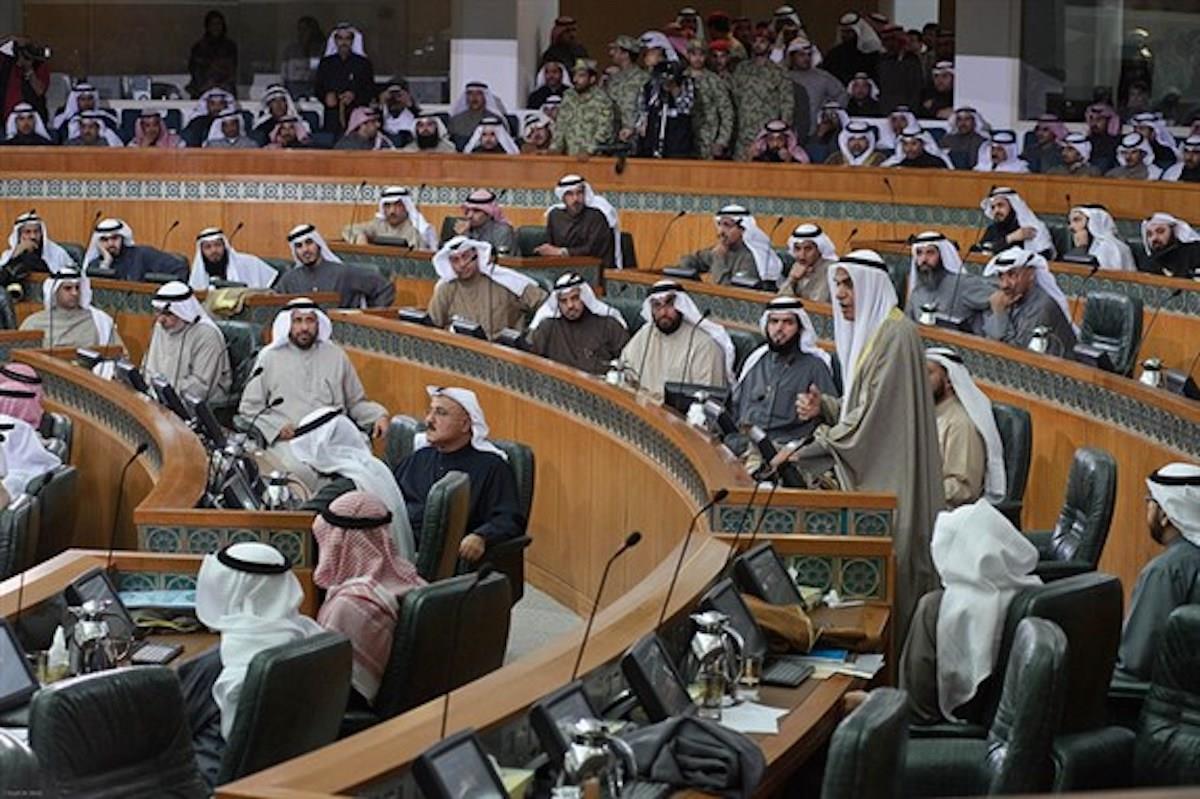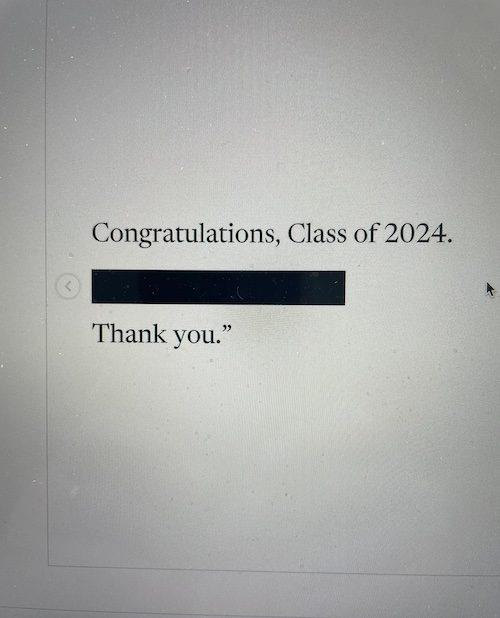
A Silenced Muslim Valedictorian Speaks, Sort Of ...
Last week, as the chosen valedictorian at the private University of Southern California (USC), she was supposed to give the traditional speech as the top student. But in mid-April USC's leadership canceled her commencement speech, citing safety concerns and“intensity of feelings” fueled by“social media and the ongoing conflict in the Middle East.”
The university leaders did not and still do not point to any specific threat. They had not even read Asna Tabassum's speech, simply because it had not yet been written.
Tabassum, a South Asian-American Muslim from San Bernardino majoring in biomedical engineering, said at the time that“USC has betrayed me.”

Here is the speech, shared with student publications, that she had hoped to deliver:
During the graduation ceremony at the school of engineering, Tabassum received a standing ovation from her classmates when her presence was acknowledged.
“As the crowd roared, she turned and laughed, raising a hand to her heart - a moment of joy at the university, which has been racked by tension and disappointment over upended graduation plans,” reports the Los Angeles Times.
The ceremony was one of several smaller graduation ceremonies on the USC campus near downtown Los Angeles, after USC's president, amid continuous campus protests, had canceled the main commencement ceremony, which usually draws around 65,000 people.

Unleashed bank deposits misused in Chinese economy

Trump's trade war would damage us all

Kuwait: Islamists and the end of Arab democracy

Instead, today, the campus was basically in lock-down mode, with strict security controls and open only to students and families and guests. Earlier this week, the faculty senate voted to censure USC's leaders for their“mishandling of events around commencement.” The vote, 21 to 7 with six abstentions and it carries no legal implications - only the school's trustees can fire the leadership - but it's clearly a sign of the frustration and even anger among the university's 4,500 professors.
Meanwhile, the other flagship Los Angeles university, UCLA, the public University of California at Los Angeles, has not escaped the protests and turmoil following pro-Palestinian demonstrations. And, as at USC, the university leadership, as well as campus police, are facing serious criticism.
Hundreds have been arrested though not charged, and many were injured at an April 30 pro-Israeli mob attack on a pro-Palestinian encampment on the campus in the western part of the city. The attack was violent and it took several hours before the unprepared police managed to take control of the situation. As of Monday, none of the attackers, most of them seemingly non-students and mostly masked, has been arrested or charged, although police are now working on identifying the attackers.
“Frankly,” said Los Angeles mayor Karen Bass,“it reminded me of January 6” at the Capitol in Washington, DC, in 2020.
UCLA's academic senate is preparing to consider two proposals criticizing the university's leadership during these weeks of protests. One would be a vote of no confidence in Chancellor Gene Block and the other would censure him. Both proposals state that Block“failed to ensure the safety of our students and greviously mishandled the events last week.” The senate's action follows a series of pronouncements from over a dozen of UCLA's academic departments criticizing the university's leadership.
USC and UCLA are just two of a large group of universities that have experienced student protests of a magnitude not seen since the days of the civil rights era in the 60s and the Vietnam war. Now the war in Gaza and the fate of the Palestinian population there and on the West Bank have set fire to American campuses, from coast to coast, just as the school year is coming to an end.

Sign up for one of our free newsletters
- The Daily ReportStart your day right with Asia Times' top stories AT Weekly ReportA weekly roundup of Asia Times' most-read stories
The larger political implications of this new student protest movement are hard to foresee. It could depend on whether the student protests keep their momentum during the summer break and on whether we'll see an end to the war in Gaza.
The November elections are now less than six months away. Biden wants, and needs, the young vote, many of whom are out there on the campuses to support the Palestinian cause. He doesn't want, or need, a split in the Democratic Party. He's a strong supporter of Israel, but it does seem that the protests have affected him to some extent, judging from his recent decision to stop the delivery of large bombs to Israel. He needs both the Jewish and the Palestinian vote. That's a balancing act worth watching.
Klas Bergman is a veteran international journalist and author. He originally published this article on his Substack, Notes on America , which examines American politics from the point of view of an immigrant resident of California. Asia Times is republishing it with permission.
Thank you for registering!
An account was already registered with this email. Please check your inbox for an authentication link.

Legal Disclaimer:
MENAFN provides the
information “as is” without warranty of any kind. We do not accept
any responsibility or liability for the accuracy, content, images,
videos, licenses, completeness, legality, or reliability of the information
contained in this article. If you have any complaints or copyright
issues related to this article, kindly contact the provider above.

















Comments
No comment